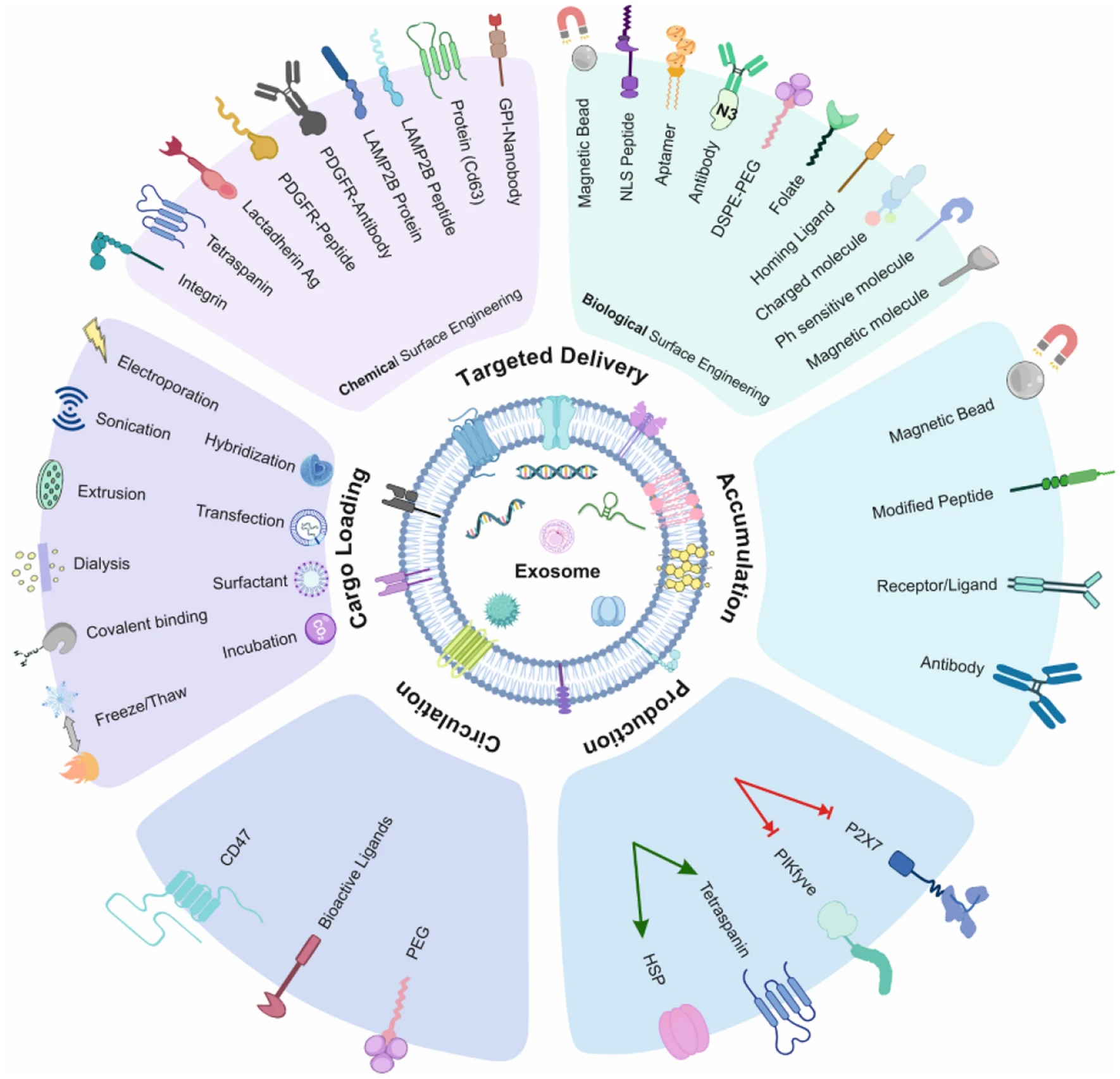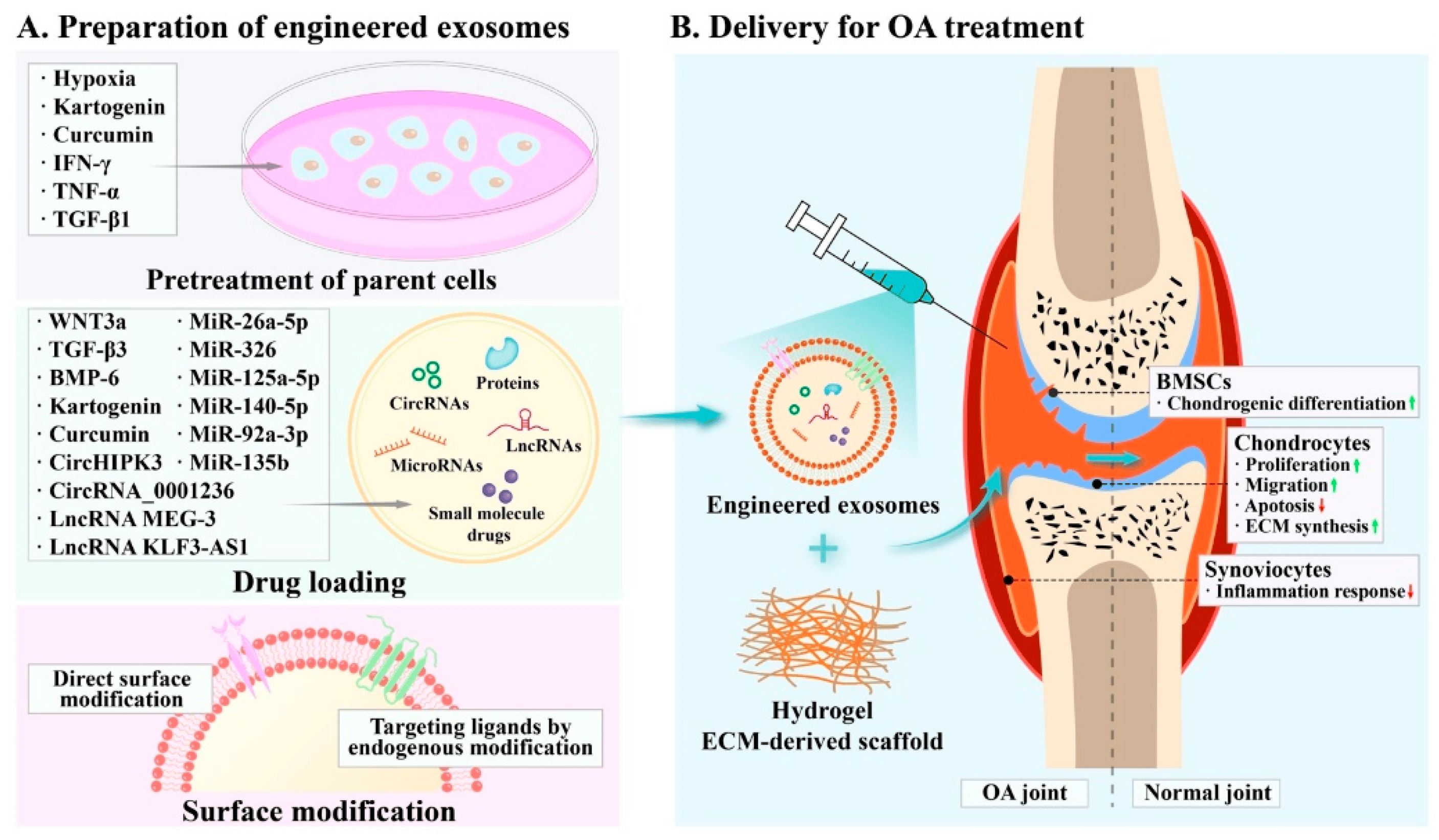Exosome Engineering Service
Exosome Engineering is a technology that involves the modification of exosomes to enhance their applications in cell therapy, drug delivery, and immune regulation. Exosomes are nano-sized vesicles secreted by cells, widely present in various body fluids, and naturally carry molecules such as proteins, RNA, and lipids, which allow them to effectively participate in intercellular communication. By engineering the surface, contents, and biological properties of exosomes, they can be endowed with stronger targeting abilities, higher drug-loading capacities, or enhanced therapeutic effects in specific diseases.
Exosome engineering service has broad applications in cancer treatment, gene therapy, immunotherapy, and neurodegenerative diseases, among other fields. For example, in cancer treatment, engineered exosomes can serve as drug carriers, precisely targeting tumor cells; in immunotherapy, exosomes can carry antigens or immune-modulating factors to enhance immune responses. Through engineering modifications of exosomes, their delivery efficiency can be improved, and toxicity reactions can be reduced, thereby holding immense potential for clinical therapies.

Sadeghi, S. et al. Inflammopharmacology, 2023.
Figure 1. Summary of the Engineering Modification of Exosomes.
Services at MtoZ Biolabs
Based on advanced technology and analysis platforms, the exosome engineering service provided by MtoZ Biolabs can engineer exosomes to ensure optimization in terms of targeting, loading capacity, and biocompatibility. The service includes exosome modification, surface labeling, functional molecule loading, and provides detailed functional evaluation and targeting analysis data. By modifying the surface and adjusting the content of exosomes, their functionality is enhanced in cell therapy, drug delivery, and immune regulation.
Service Advantages
1. One-Time-Charge
Our pricing is transparent, no hidden fees or additional costs.
2. Precise Targeting
By utilizing customized exosome surface modification techniques, the targeting capability of exosomes is enhanced, ensuring that drugs or therapeutic molecules are accurately delivered to target cells or tissues.
3. High Safety and Biocompatibility
Engineered exosomes exhibit excellent biocompatibility and low immunogenicity, ensuring their safety when used in vivo.
4. Personalized Customization
Tailored exosome engineering solutions are provided based on specific client requirements, meeting the needs of various disease treatments and research applications.
Applications
1. Cell Therapy
Exosome engineering service can optimize intercellular communication and enhance the effectiveness of cell therapies, such as promoting the activation and targeted attack of specific cells in immunotherapy.
2. Drug Delivery
Exosomes, as natural drug carriers, can effectively deliver drugs, RNA, or proteins to specific target cells or tissues, improving the targeting and efficiency of treatments.
3. Gene Therapy
Exosome engineering service can deliver modified genes or CRISPR-related technologies via exosomes, enabling precise interventions for genetic diseases, achieving efficient and low-toxicity gene therapy.
4. Immune Regulation
Engineered exosomes can be used for immune modulation, enhancing immune cell functions or reducing immune responses, applicable in the treatment of autoimmune diseases, allergies, and other conditions.
5. Cancer Treatment
Exosome engineering service can facilitate targeted cancer therapy through exosomes by delivering immune-modulating molecules, anti-cancer drugs, or small RNA molecules, improving treatment outcomes and overcoming cancer immune evasion.
Case Study
1. Engineering of MSC-Derived Exosomes: A Promising Cell-Free Therapy for Osteoarthritis
This study aims to explore the use of engineered mesenchymal stem cell (MSC)-derived exosomes as a cell-free therapy for osteoarthritis. The research focuses on MSC-derived exosomes and evaluates their potential in osteoarthritis treatment. The study methodology involves isolating MSC-derived exosomes and engineering them through molecular loading or surface modifications to enhance their therapeutic efficacy. High-resolution mass spectrometry and functional assays were used to assess the therapeutic effects of these modified exosomes on osteoarthritis. The results demonstrate that engineered exosomes significantly improve symptoms in an osteoarthritis mouse model, including reducing inflammation, promoting cartilage repair, and enhancing joint function. Compared to unmodified exosomes, the engineered exosomes exhibit stronger anti-inflammatory effects and greater regenerative potential. The study concludes that MSC-derived engineered exosomes hold great promise as a cell-free therapy for osteoarthritis, offering effective treatment with high clinical translational potential.

Chen, J. et al. Membranes, 2022.
Figure 2. Processing and Application of Engineered Exosomes for Osteoarthritis (OA) Treatment.
FAQ
Q1: How to Ensure that the Engineered Exosomes Can Stably and Effectively Deliver Molecules?
A1: We use optimized exosome extraction and purification techniques, combined with a rigorous quality control process, to ensure the purity, integrity, and functionality of the exosomes. Additionally, we conduct precise functional analyses, such as cell uptake and delivery efficacy tests, to verify the stability and targeted delivery capability of the engineered exosomes.
How to order?







